Faces of Food: Conservation Warriors
Jeff, Derek and Doug Martin are big believers in the power of healthy soils to deliver prosperous crops. Utilizing unconventional farming methods, they’ve brought their operation to the forefront of regenerative farming and received multiple benefits.
Mimicking Nature for Prosperous Fields
Years ago, other producers weren’t sure what to think about Jeff Martin as he made drastic changes in how he managed his farm fields. He was the first in the area to adopt practices like no-till farming, cover crops and soil biologicals. He says he also became the talk of the coffee shop.
Today, however, Martin Family Farms of Mount Pulaski, IL, is recognized for being on the forefront of regenerative agriculture. Jeff was named a “Living Legend” by No-till Farmer magazine. And his sons are carrying on what he started as early adopters themselves.
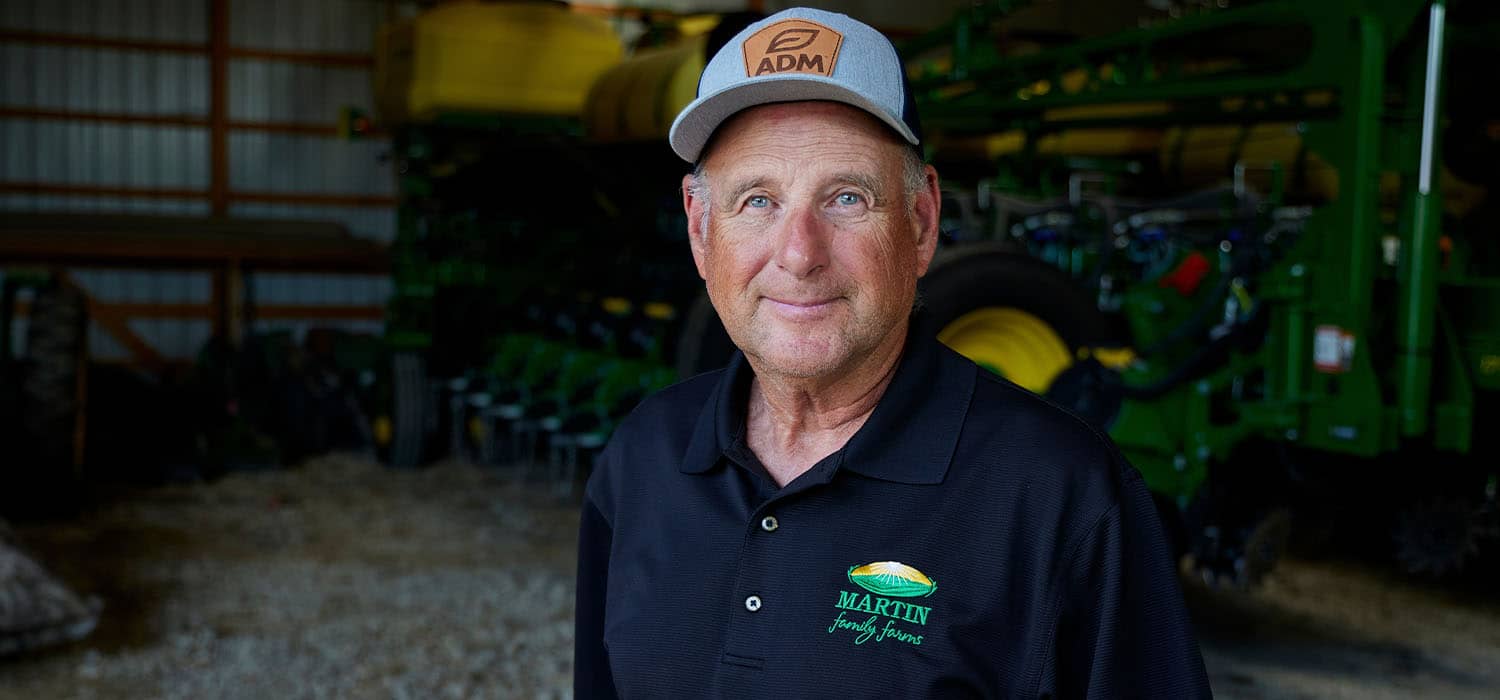
Over the years, soil on Martin Family Farms has gradually recovered from generations of conventional farming. Organic matter has increased. The soil microbiome has expanded. And earthworms are abundant.
Jeff says he can feel the difference under his feet by just walking the land, and son Derek Martin concurs. “In a conventional-type system, you can take the spade out in the field and it’s like hitting concrete. With regenerative farming and the soil structure we have, you can sink it in without any effort.”
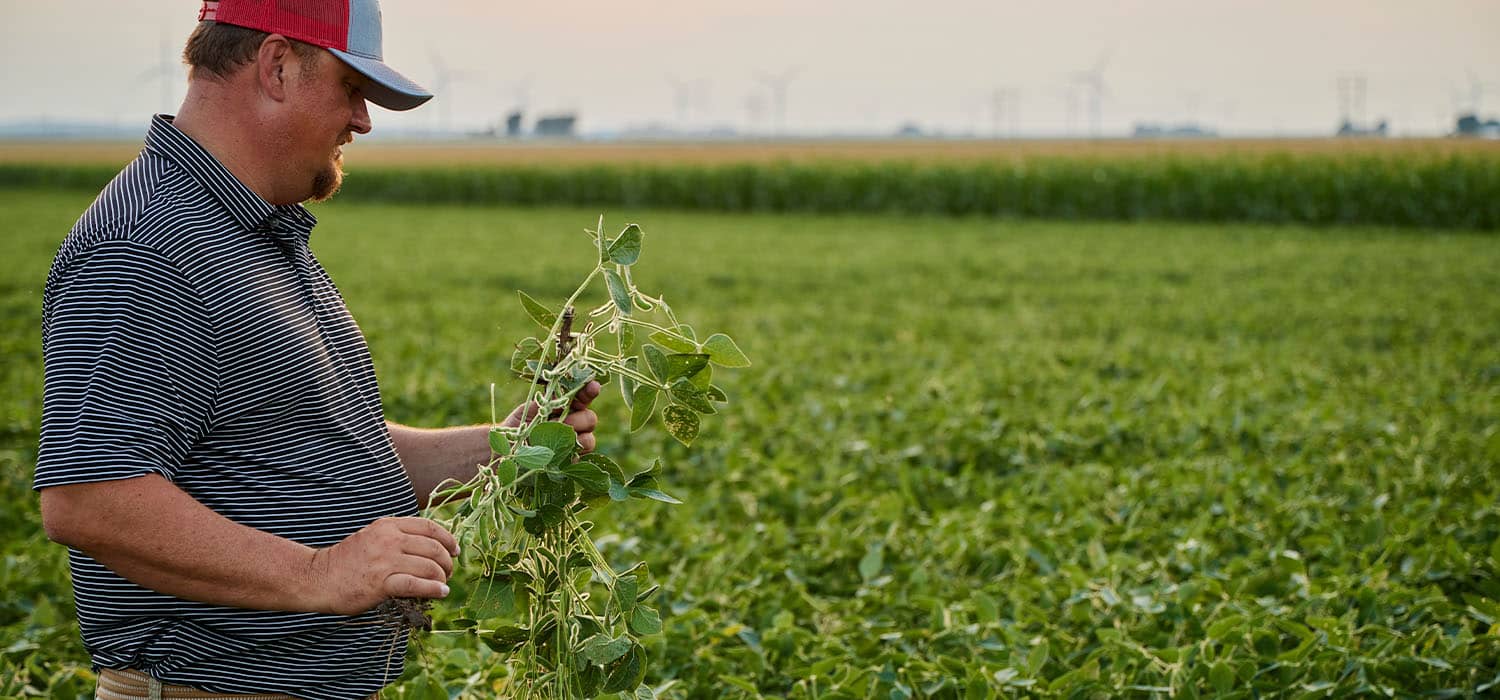
Always learning
Jeff Martin started farming in 1976 with his father. In the early years, he says, they were mostly conventional farmers. It took a damaging dust storm for Jeff to see the need for change, and he began researching conservation farming. He’s been learning ever since.
“I attended a lot of national no-till seminars from No-Till Farmer magazine,” he explained. “And talking to farmers at that convention was probably as beneficial as the seminars that we attended because farmers are really innovators.”
Over the years, technology has changed to meet the needs of producers like the Martins, and the family continually assesses new ways of doing things. Doug Martin says they constantly try different things to try and improve, “whether it be a cover crop ratio, or different products we put in with our compost tea that may help the soil.”
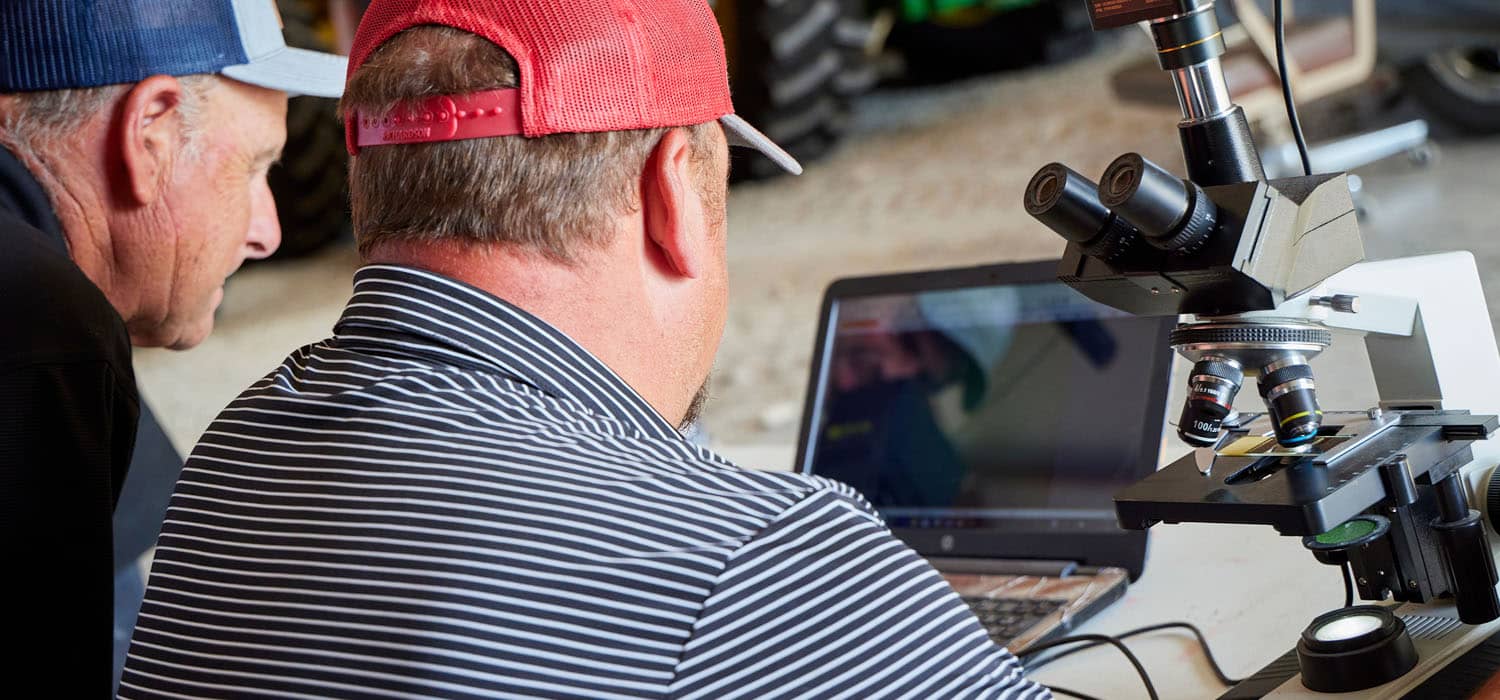
More from less
By utilizing practices that improve soil health, the Martins hope to create an environment where plants can better access and utilize minerals and nutrients that are already in the soil. Over the long term, the hope is there will be less need for synthetic fertilizers, herbicides and fungicides.
“If we can mimic nature and let the soil take over, we can put balance back in our fertility,” says Jeff.
The Martins are trying to eliminate some use of synthetic fertilizers by adding biological products to the soil, such as their compost tea.
“We’re trying to make that soil healthier by introducing more beneficial fungi, bacteria, things like that,” said Doug. “So the soil becomes a more natural environment. This, in turn, allows the plant to produce healthier grain, better fight off disease and use nutrients in the soil more efficiently.”
LEARN MORE: What is compost tea and why should producers care?
Derek Martin adds that for decades producers have been taught that the three most important things in farming are N, P and K. But through regenerative farming, they’ve come to understand that other things can be done to improve yields.
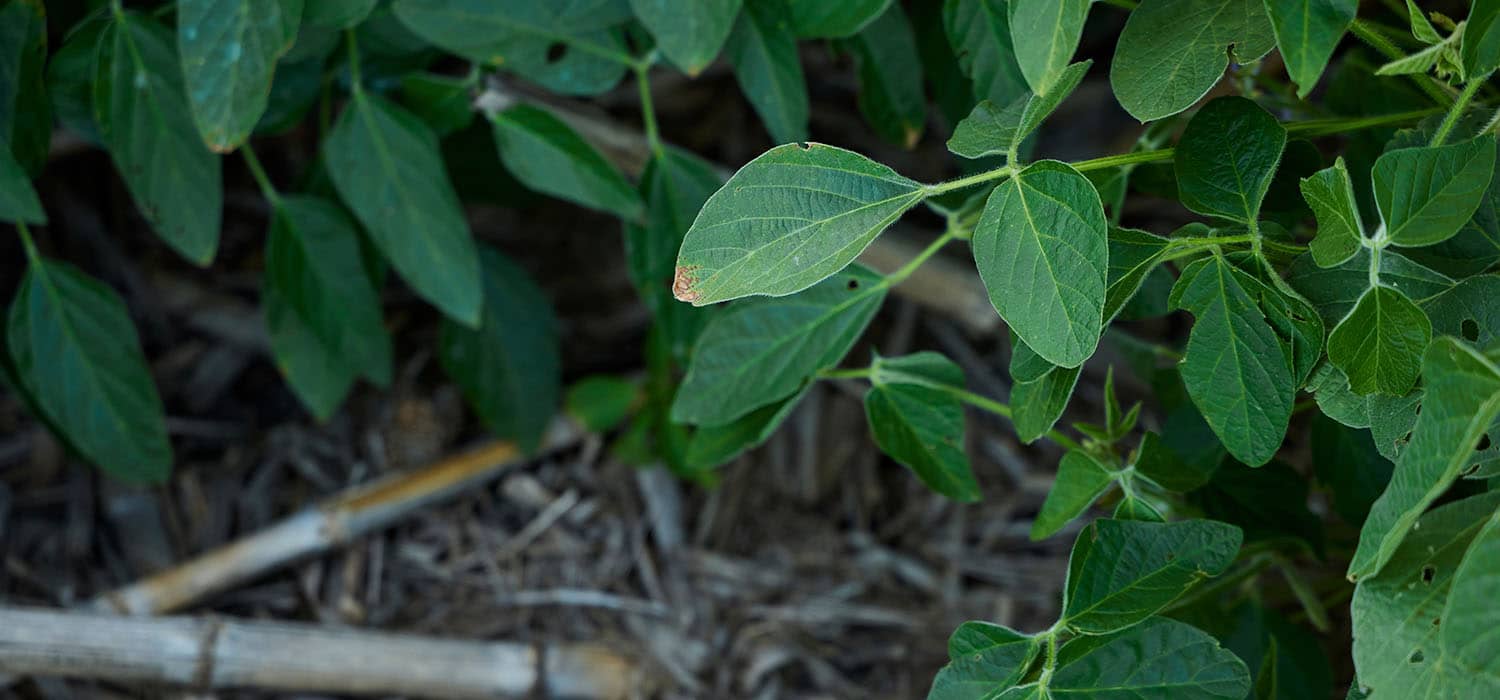
Derek says their shift to regenerative farming has produced numerous benefits:
- Reduced synthetic fertilizer use
- Better water holding capacity in soils
- Better water infiltration of soils
- Less disease in soils
- Reduced herbicide use
- Reduced fungicide use
- Eliminated soybean seed treatment
“It’s not like we’re eliminating everything, we’re just changing the focus to different things, such as biologicals and cover crops,” Derek says.
Striving for more nutritious crops
While so much attention in farming goes to producing quantity of grains, the Martins believe more attention needs to shift to the quality of those grains.
“Today’s crops and grain, soybeans and corn, the nutritional value is not near what it was 40 or 50 years ago,” says Jeff. “We got started in improving soil health to raise a better quality and nutritionally valuable crop for the health of the people who eat this crop.”
The Martins continue to see improvements in soil health and crop quality as they experiment with different farming methods. They’re also doing what they can to show other producers that their unconventional methods are the future of farming.
“Change is scary and not easy,” says Jeff. “The majority of people I’ve talked to in my lifetime about what we’re doing don’t believe it’ll work for them. But if you want to start on this journey, you must have it in your mind that it will work. Because it does work.”
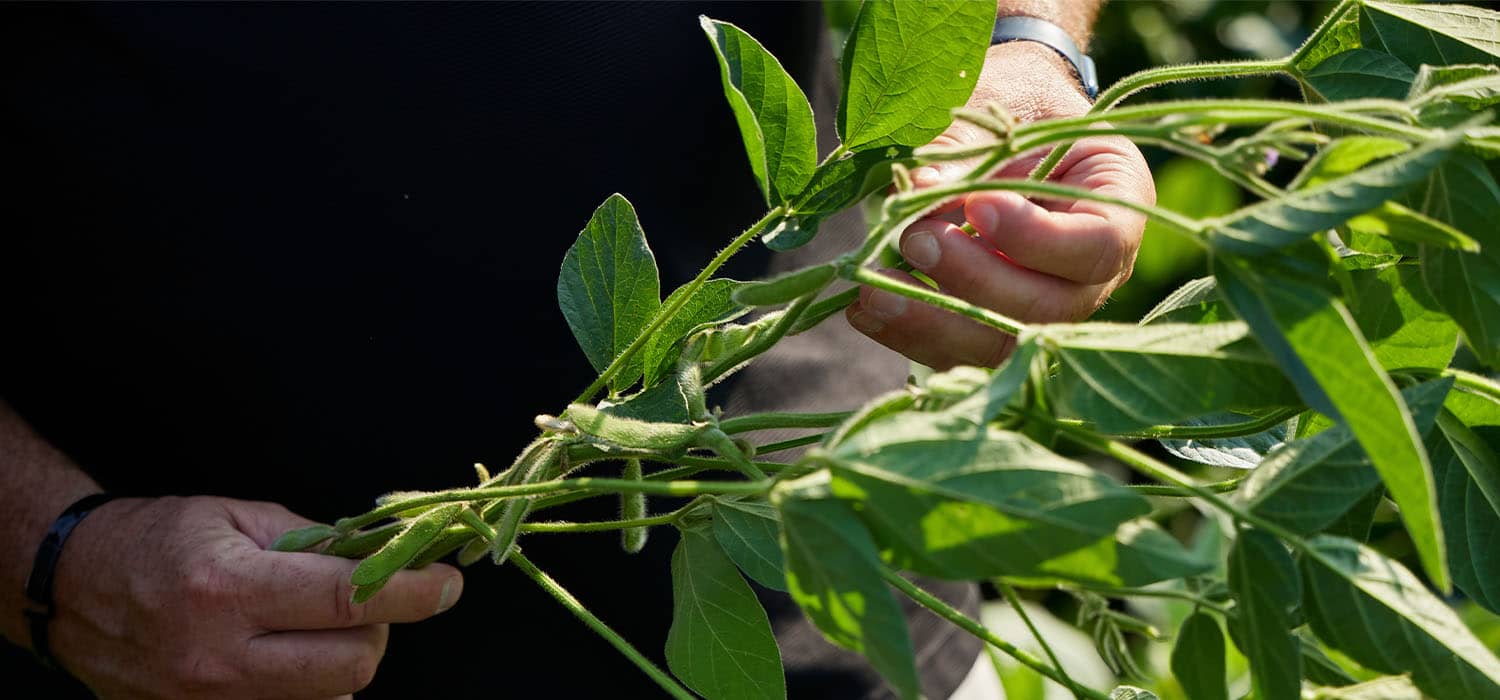
The Martins believe that new programs, like ADM re:generations™, are helpful because they encourage producers to experiment with conservation farming methods. The program also rewards producers like the Martins who already use these practices.
ADM Account Manager Allison Thompson works with the Martins to take advantage of re:generations programs that pay them for farming practices like cover crops and emissions scoring. “I was able to bring our program to them, and they get not just the benefit of starting something new or putting new cover crops on new ground, they also get the benefit from having done it in the past.”
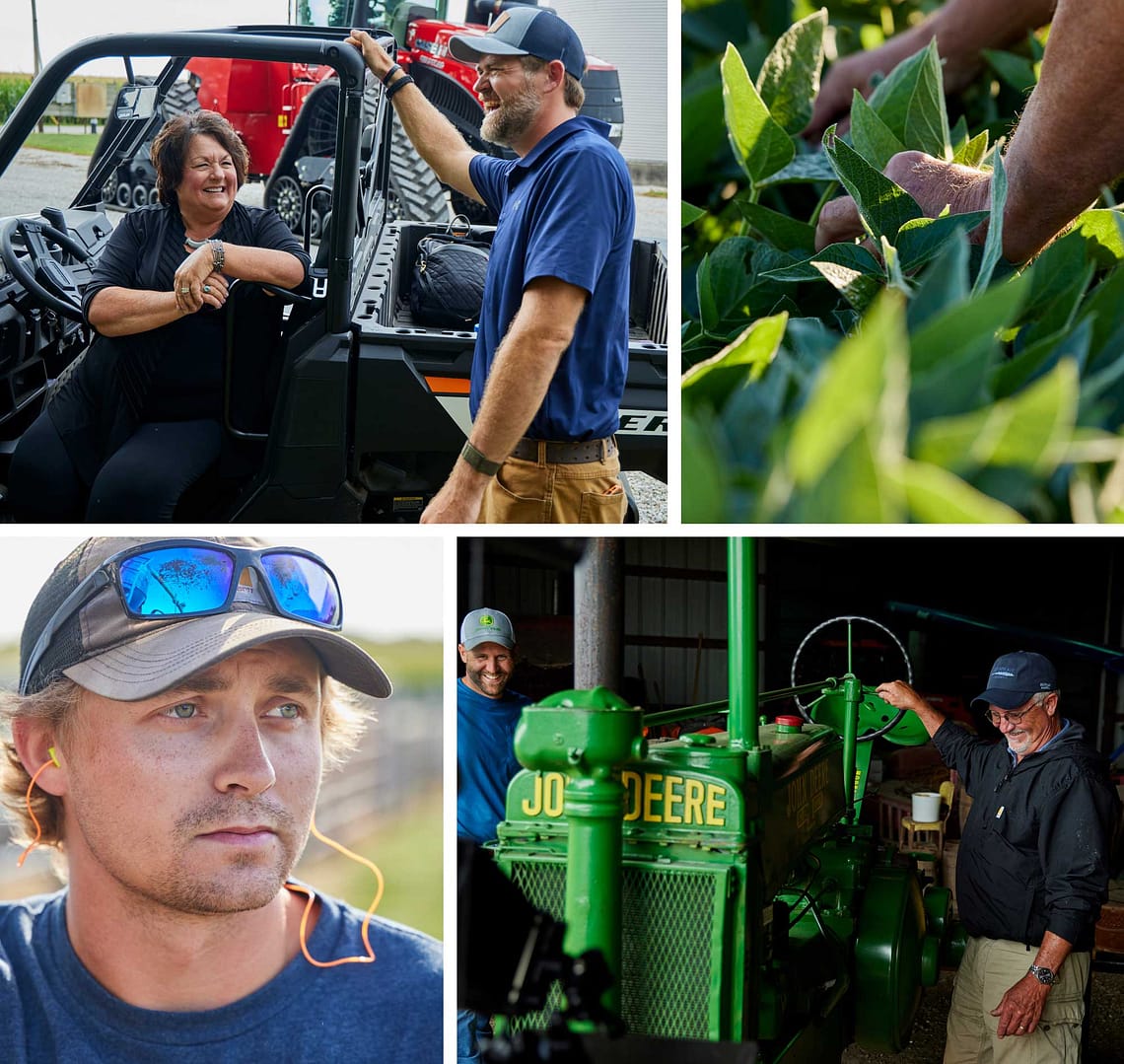
More American Farm Stories
The men and women who operate farms across this great country have great stories to tell. Of hard work. Challenging conditions. Overcoming obstacles. Family members working together. Over many generations. And hopeful for the future. Take the time to hear their voices.
